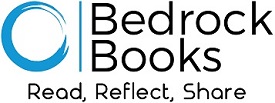On a bright and sunny morning last week, my partner and I set off for HMP Littlehey to hold our first reading group session in the prison library. This came about directly as a result of placing donated copies of Splitting The Arrow in all UK prisons last year.
HMP Littlehey was the first to write back, with feedback, which resulted in an opportunity to facilitate three sessions of the prison’s reading club, looking at the two books by Prem Rawat: Pot With the Hole and Splitting The Arrow.
This was a first in so many ways…
It was a first for a Kifubon reading group of any kind in the UKA first for us to visit a prison for this purposeA first for HMP Littlehey’s reading groupAnd, although I have run many focus groups in the past, a first for me in facilitating a reading group
I don’t think anyone knew what to expect!
So, what happened?
On arrival I handed out some hot off-the-press Kifubon bookmarks to every participant. They accepted them so graciously that it set the scene for the rest of the afternoon. There was an atmosphere of warmth and respect, which emanated from the group – to the point where I felt genuinely humbled to be in their presence.
We started off with most participants taking it in turns to read a few pages of Pot With the Hole, as this is the first story in Splitting the Arrow and a nice way into the longer book.
Although The Pot with the Hole could be considered a simple children’s book, the book’s basic message is that someone who has a flaw can still contribute something of value. Initially, I was a little concerned that the book would appear to grown men to be ‘childish’, but the story seemed to resonate on a deeper, more meaningful level.
John said, “What I liked is this is a really simple book, we are used to more complicated books but it was refreshing to read a simple story that had a deeper meaning.”
And someone wrote on the feedback form that he liked “The idea that my weaknesses (holes in the bucket) may be the cause eventually of some beauty in the world (flowers).”
Later on Paul wittily remarked: “We are all cracked pots” (as in ‘crackpots’!)
Several also looked at the story from a social perspective – how peoples’ actions affected others:
Alistair commented that it was someone else who saw the worth of the broken pot – it wasn’t the pot himself – and that the other person did something about it.George commented that the pot’s state of being affected more than just him, it affected the hedgehog too, so we have to be, ‘aware how our state of mind affects others around us’.
We then moved on to Splitting the Arrow, starting with the section ‘You’.
We looked at the question, ‘You know about people around you but do you really know yourself?’ with some interesting expressions, especially about the coconut story:
There was agreement that you needed to find your niche, something you were good at, just like the coconut so you could take root and grow.
James, from the Caribbean, particularly related to the coconut.Even the chief librarian commented that she had found her niche as Librarian in the prison library!
The next section ‘Choice’ elicited several noteworthy comments:
Someone pointed out that you have to have clarity before you can choose your next action.Someone else commented, “We are here because of our bad choices”They were intrigued by the statement, “You are the most qualified person to solve your problems”, that it was not about ‘qualifications’, but rather it was down to them and not anyone else to solve their problems.
Just before it was time to draw the meeting to a close there was a fascinating and humorous discussion about the fact that in prison you have time to contemplate and reflect, because you don’t have anything else to worry about, like mortgages, bills, work, relationships.
Comments on the feedback form were mainly positive – most seemed to enjoy the simplicity of the books:
“I enjoyed the depth in simplicity””Both the books were really easy to read, almost written for children. But the message contained a strong message on life and understanding-discovering yourself.”They also enjoyed the time for, ‘self-reflection, thinking about the inner self’, and ‘the insightful conversations’.
It was a privilege for us to witness the insights and openness expressed by the participants during the afternoon. It seemed that our visit, the reading of the book and the discussions acted as a catalyst to their understanding.
From their written comments it was apparent that they had appreciated the afternoon:
“Thank you for coming!””There should be more of these sessions for they can be very beneficial to people’s mental /emotional health.”
We drove away from HMP Littlehey with very happy hearts, and reflecting it was probably one of our best days out ever.
Lesley and Andy

